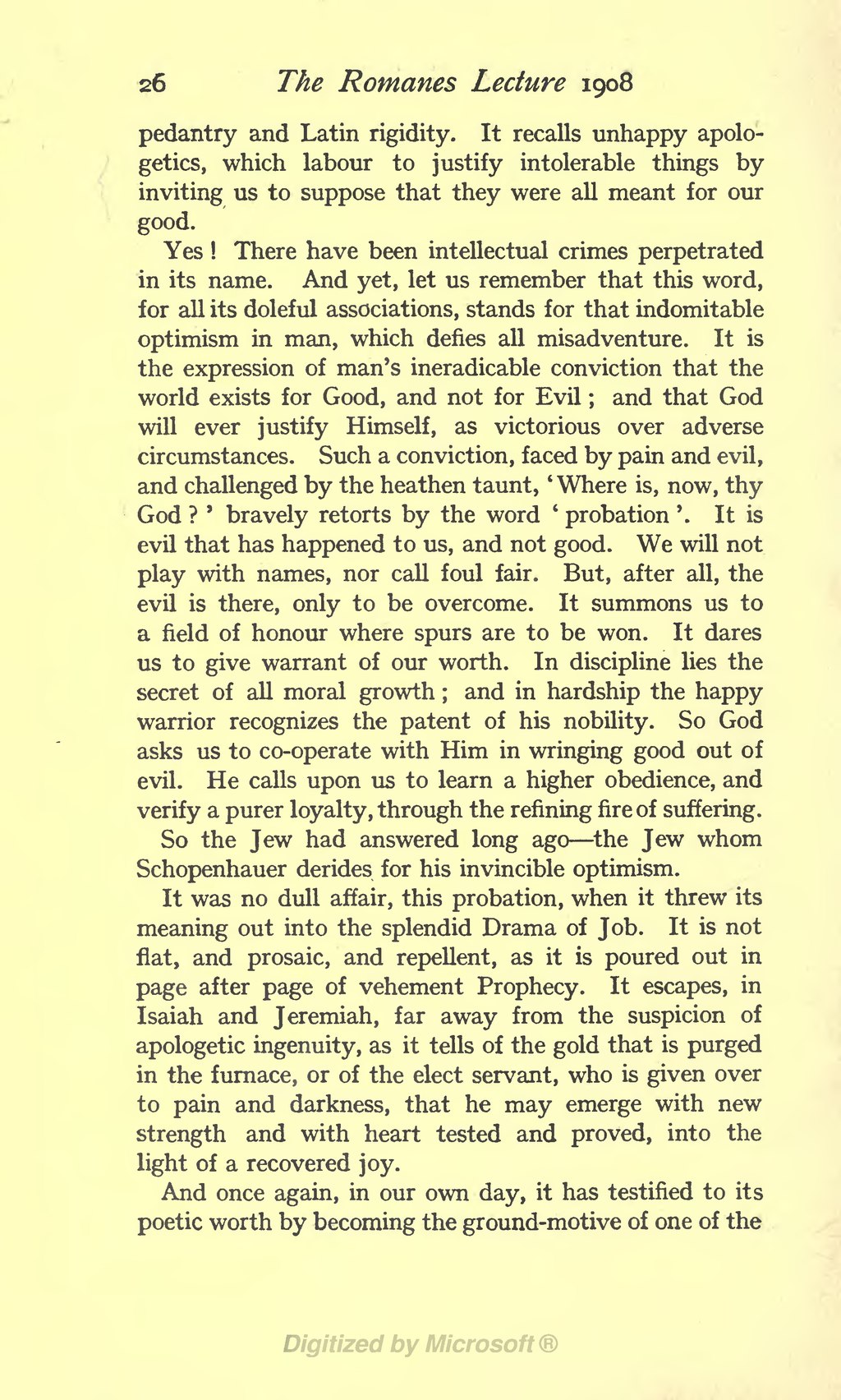pedantry and Latin rigidity. It recalls unhappy apologetics, which labour to justify intolerable things by inviting us to suppose that they were all meant for our good.
Yes! There have been intellectual crimes perpetrated in its name. And yet, let us remember that this word, for all its doleful associations, stands for that indomitable optimism in man, which defies all misadventure. It is the expression of man's ineradicable conviction that the world exists for Good, and not for Evil; and that God will ever justify Himself, as victorious over adverse circumstances. Such a conviction, faced by pain and evil, and challenged by the heathen taunt, 'Where is, now, thy God?' bravely retorts by the word 'probation'. It is evil that has happened to us, and not good. We will not play with names, nor call foul fair. But, after all, the evil is there, only to be overcome. It summons us to a field of honour where spurs are to be won. It dares us to give warrant of our worth. In discipline lies the secret of all moral growth; and in hardship the happy warrior recognizes the patent of his nobility. So God asks us to co-operate with Him in wringing good out of evil. He calls upon us to learn a higher obedience, and verify a purer loyalty, through the refining fire of suffering.
So the Jew had answered long ago—the Jew whom Schopenhauer derides for his invincible optimism.
It was no dull affair, this probation, when it threw its meaning out into the splendid Drama of Job. It is not flat, and prosaic, and repellent, as it is poured out in page after page of vehement Prophecy. It escapes, in Isaiah and Jeremiah, far away from the suspicion of apologetic ingenuity, as it tells of the gold that is purged in the furnace, or of the elect servant, who is given over to pain and darkness, that he may emerge with new strength and with heart tested and proved, into the light of a recovered joy.
And once again, in our own day, it has testified to its poetic worth by becoming the ground-motive of one of the
